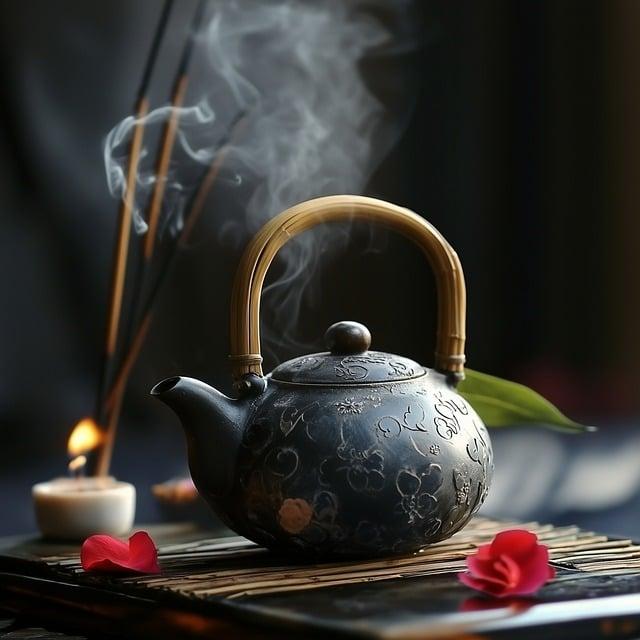In Taiwan, the air thickens with mystery each August as Ghost Month unfolds. Legend whispers that the gates of the underworld swing open, allowing spirits to roam the earth. Families prepare elaborate feasts, setting tables adorned with incense and offerings, hoping to appease wandering souls. Streets come alive with vibrant lanterns and traditional performances, guiding the spirits home. Children giggle nervously, while elders share tales of encounters with the unseen. In this month of reverence and remembrance, the living and the departed dance together in a delicate balance.
Table of Contents
- Understanding the Cultural Significance of Ghost Month in Taiwan
- Traditions and Rituals: Honoring Ancestral Spirits
- Navigating the Superstitions: Dos and Donts During Ghost Month
- Celebrating Life: Modern Interpretations and Community Events
- Q&A

Understanding the Cultural Significance of Ghost Month in Taiwan
Ghost Month, observed during the seventh lunar month, holds profound cultural significance in Taiwan, intertwining beliefs, traditions, and communal practices. This period is characterized by the belief that the gates of the underworld open, allowing spirits to roam the earth. Families honor their ancestors and appease wandering souls through various rituals, which include:
- Offering Food and Incense: Families prepare elaborate meals and burn incense to invite spirits to partake in the offerings, ensuring they feel welcomed and respected.
- Burning Joss Paper: This practice symbolizes sending material goods to the afterlife, providing comfort and support to deceased loved ones.
- Community Events: Local festivals and performances, such as traditional opera, are held to entertain both the living and the spirits, fostering a sense of community and shared remembrance.
The observance of Ghost Month serves as a poignant reminder of the connection between the living and the dead, emphasizing respect for ancestors and the importance of familial bonds. It is a time for reflection, gratitude, and reconciliation, where individuals are encouraged to confront their past and honor those who have passed. The rituals and customs practiced during this month not only reinforce cultural identity but also promote a sense of unity among communities, as people come together to share stories, participate in ceremonies, and uphold traditions that have been passed down through generations.

Traditions and Rituals: Honoring Ancestral Spirits
During Ghost Month, the people of Taiwan engage in a variety of traditions and rituals designed to honor and appease their ancestral spirits. This period, believed to be when the gates of the underworld open, sees families preparing offerings to ensure that their deceased loved ones are well cared for. **Food, incense, and joss paper** are commonly placed on altars, symbolizing sustenance for the spirits. The act of burning joss paper, often crafted into shapes like money or houses, is particularly significant, as it is thought to provide the spirits with material comforts in the afterlife.
Communal activities also play a vital role in the observance of this month. **Street festivals, traditional opera performances, and lantern displays** are organized to entertain the wandering spirits and invite them to join in the festivities. Families often gather to share stories of their ancestors, reinforcing the bonds between the living and the dead. Additionally, many people refrain from certain activities, such as swimming or traveling at night, to avoid attracting unwanted spirits. This blend of reverence and celebration creates a unique atmosphere, where the past and present intertwine, reminding everyone of the enduring connection to their heritage.

Navigating the Superstitions: Dos and Donts During Ghost Month
As Ghost Month unfolds, it’s essential to embrace the cultural practices that honor the spirits while ensuring personal safety and respect. Here are some **dos** to consider during this time:
- Offer Food and Incense: Prepare offerings of food and incense to appease wandering spirits. This gesture is believed to bring peace and blessings to your household.
- Participate in Ceremonies: Engage in local rituals and ceremonies, such as the burning of joss paper, to show respect for the deceased and invite good fortune.
- Stay Positive: Maintain a positive mindset and avoid negative discussions or actions, as it is believed that spirits can be attracted to negativity.
Conversely, there are certain practices to avoid during this sensitive period. Here are some **don’ts** to keep in mind:
- Avoid Swimming: It is commonly believed that spirits may drag individuals into the water, so it’s best to steer clear of swimming pools and beaches.
- Don’t Wear Red: Red is associated with celebrations, and wearing it during Ghost Month may be seen as disrespectful to the spirits.
- Refrain from Moving House: Moving to a new home during this month is thought to invite misfortune, so it’s advisable to postpone any major relocations.

Celebrating Life: Modern Interpretations and Community Events
In Taiwan, Ghost Month is a vibrant tapestry of tradition and modernity, where ancient beliefs intertwine with contemporary expressions of community spirit. During this month, which typically falls in August, families honor their ancestors by preparing elaborate offerings, including food, incense, and paper money. Streets come alive with colorful parades and performances, showcasing the rich cultural heritage of the island. Local temples host ceremonies that attract both the devout and the curious, creating a unique atmosphere where reverence meets celebration. The air is filled with the scent of incense and the sounds of traditional music, inviting everyone to partake in the festivities.
Modern interpretations of Ghost Month have also emerged, reflecting the evolving nature of Taiwanese society. Community events often feature a blend of traditional rituals and contemporary entertainment, such as:
- Night markets offering themed foods and ghostly delicacies
- Art installations that explore themes of memory and loss
- Workshops on traditional crafts, allowing participants to create their own offerings
- Film screenings showcasing ghost stories and folklore
This fusion of the old and the new not only honors the past but also fosters a sense of community, bringing people together to reflect on life, death, and the connections that bind them.
Q&A
-
What is Ghost Month?
Ghost Month, known as Yu Lan Jie in Mandarin, is a traditional Taiwanese festival that occurs in the seventh month of the lunar calendar. It is believed that during this time, the spirits of the deceased return to the living world.
-
When does Ghost Month take place?
Ghost Month typically falls in August, but the exact dates vary each year based on the lunar calendar. The entire month is dedicated to honoring and appeasing wandering spirits.
-
How do people celebrate Ghost Month?
Celebrations include:
- Offering food and incense to spirits
- Burning paper money and other items for the deceased
- Participating in traditional ceremonies and rituals
-
Are there any taboos during Ghost Month?
Yes, many people observe certain taboos, such as:
- Avoiding major life events like weddings
- Refraining from swimming, as it is believed that spirits may drown the living
- Being cautious about nighttime activities
As the moonlight dances on the streets of Taiwan during Ghost Month, the blend of reverence and festivity creates a unique cultural tapestry. Embracing both the past and present, this month invites us to reflect on our connections with those who came before us.

大家好,我是彼得潘,專業的手法身體治療師。我喜歡探索和研究各種主題,並透過與人工智慧的合作分享專業、實用、有趣的文章。我們定期進行人工審核,以確保內容的準確性。如果您發現文章中有任何不準確的地方,請隨時與我們聯繫,我們會及時糾正。您可以透過 [email protected] 與我們聯繫。



